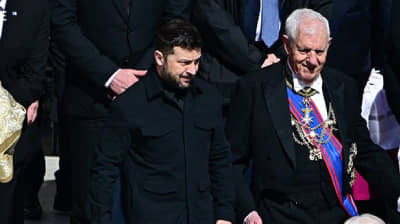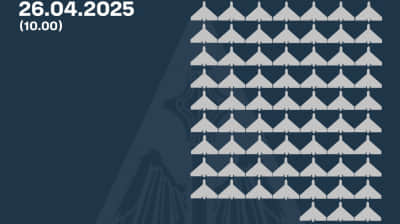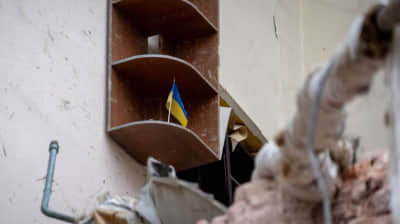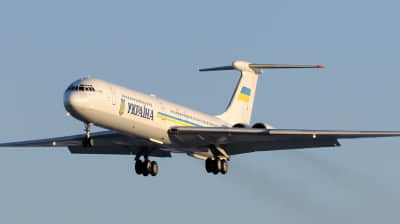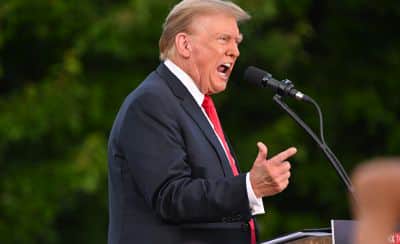Russian General Lapin eases border security in Kursk Oblast shortly before Ukraine's offensive – WSJ
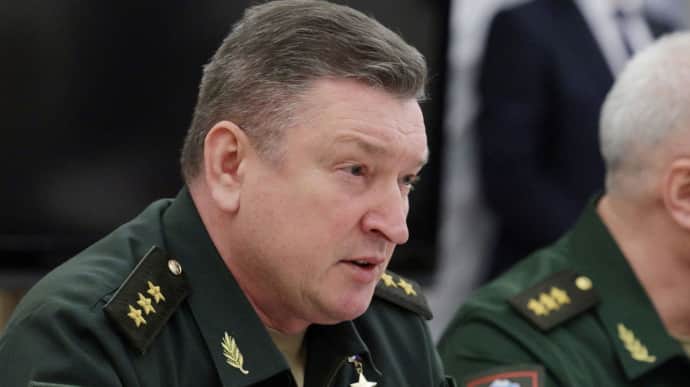
The Wall Street Journal (WSJ) has reported that Russian Colonel General Alexander Lapin, who oversaw security in Russia’s Kursk Oblast, dissolved the authority that was responsible for protecting the vulnerable border region months before Ukraine's operation.
Source: WSJ
Quote: "In the spring of this year, Colonel General Alexander Lapin said the military alone had the strength and the resources to protect Russia’s border, according to an official in Russian security services.
That plan left yet another hole in Russia’s weak border defences, which crumbled earlier this month when Ukrainian troops executed a lightning offensive across the border into Kursk. Ukrainian troops crossed the border to find Russian troops in disarray."
Details: The WSJ noted that "Lapin alone didn’t open the gates to the first foreign invasion of Russian territory since World War II". The reasons for this were a critical shortage of personnel, as well as a mistake typical of Russia's top leadership, which is often unaware of the realities of the battlefield.
"Since the start of the [full-scale] war, Russia’s centralised, top-down thinking, one of the defining features of Russia under leader Vladimir Putin, has backfired on the battlefield. It has hampered sober planning in the Kremlin, and when those plans have failed, it has prevented Russian forces from improvising to react to fast-moving developments", the WSJ writes.
The WSJ noted that it was unclear whether the interagency council (which brought together military officers and local and regional security officials) that Lapin disbanded would have helped organise a coordinated response to the Ukrainian offensive. However, it is worth mentioning that without a centralised body in charge of Russia's response, Russian efforts to dislodge Ukraine’s forces have so far been chaotic and ineffective.
The Russian Defence Ministry did not respond to a WSJ request for comment. It did not release an explanation for basically letting Ukrainian troops cross the Russian border, either.
"Hours after Ukraine’s incursion, Russia’s chief of general staff, General Valery Gerasimov, said Lapin’s forces and border guards were working ‘to destroy the enemy in areas directly adjacent to the Russian-Ukrainian border’. Gerasimov hasn’t made any public appearances since the incursion," the WSJ points out.
The WSJ emphasises that the initial reaction is reminiscent of the first hours of the uprising led by Wagner Group chief Yevgeny Prigozhin in 2023, who moved his forces towards Moscow to remove Gerasimov and then-Defence Minister Sergei Shoigu, whom he blamed for Russia's military problems.
Despite tons of signals in the days before the coup, the Kremlin was caught off guard and froze in the face of Prigozhin's actions.
The WSJ noted that Lapin knew that Ukrainian troops were amassing their troops near the Russian border and even sent such messages to Moscow, but the military authorities took no action, perceiving the Ukrainian manoeuvres as a tactic of psychological warfare.
When Ukrainian soldiers entered the no-man's land between Ukraine and Russia, they faced no resistance, and there were no territorial defence forces inside Russia to slow them down.
Ukrainian troops used electronic jamming to disrupt communications, leaving Russian troops unable to contact their commanders. Lightly armed Russian troops were trapped and scattered in the forest.
Quote: "The defensive planning was almost as disastrous as Russia’s initial invasion itself when military planners relying on faulty intelligence – and a belief that the Ukrainian military would crumble under a full-scale assault – sent armoured columns into Ukraine in parade formation, making them easy targets for drones and antitank weapons."
More details: When the Ukrainian soldiers entered Russia’s Kursk Oblast, the first armed resistance came from the 488th Motorised Rifle Regiment of the 144th Separate Guards Motorised Rifle Brigade, a unit composed almost entirely of conscripts who, according to Russian policy, should not participate in combat actions.
"It wasn’t the first time poor planning and a lack of men had come together under Lapin’s command," the WSJ writes.
In particular, in early September 2022, it was Lapin who led a group of Russian troops and occupied part of Kharkiv Oblast. At that time, Ukrainian troops quickly broke through the Russian defences and liberated almost the entire oblast in a matter of days.
Following this defeat, Chechen leader Ramzan Kadyrov called for Lapin's resignation.
For reference: Lapin was born in 1964 in Kazan.
From 2012 until 8 July 2014, Lapin was the Commander of the 20th Guards Combined Arms Army, which includes the 53rd Anti-Aircraft Missile Brigade. According to an international investigation, the Buk missile system used to shoot down the Malaysian Boeing on 17 July 2014 was delivered to Ukraine’s east from the base of this particular brigade near Kursk.
In 2017, he was appointed Chief of Staff of the Russian troops in Syria. Then, in November 2017, he was appointed Commander of the Central Military District.
On 29 March 2022, Lapin decorated the military who "showed courage and heroism during the liberation of settlements in Chernihiv Oblast", including his son, Lieutenant Colonel Denis Lapin. A few days later, Russia completely withdrew its troops from Ukraine’s north.
Lapin also led the Centre Group of Forces, which took part in the battles for Lysychansk, Luhansk Oblast. On 4 July 2022, he was awarded the title of Hero of Russia.
Ukrainian intelligence noted that after Ukrainian troops successfully advanced in and liberated Kharkiv Oblast, Lapin was entrusted with commanding the forces of the Western Military District, which failed to capture the area.
At the end of October 2022, Lapin led the seizure of the town of Svatove in Luhansk Oblast.
In October 2022, Lapin was harshly criticised by Chechen leader Ramzan Kadyrov, who called him a "fool" and blamed him for the "crisis on the Lyman front".
Support UP or become our patron!

